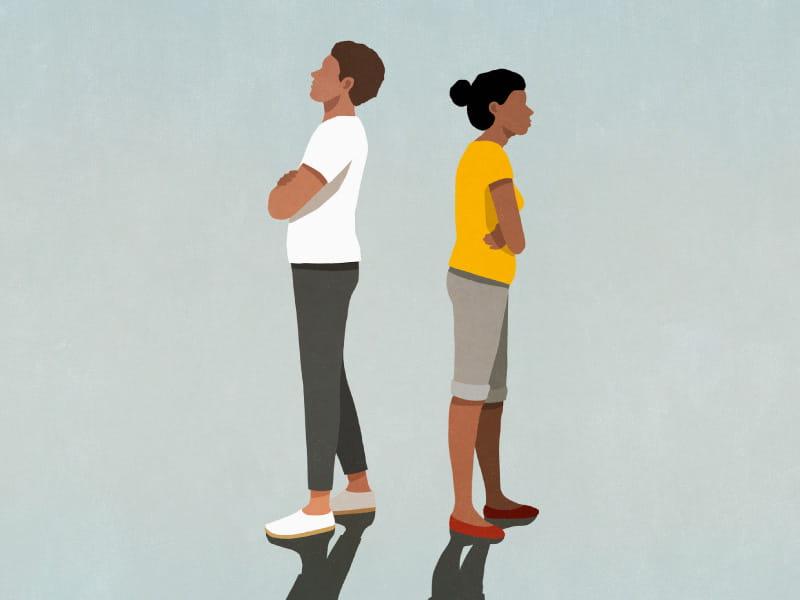Anger's role in heart attack risk may start in the arteries
By Laura Williamson, American Heart Association News

短暂的愤怒可能会暂时损害血管正常扩张的能力, 动脉硬化一种被认为是防止动脉硬化的关键功能, new research suggests.
The findings, published Wednesday in the Journal of the American Heart Association这可能有助于解释愤怒是如何增加心脏病发作风险的.
“愤怒对你的血管功能有害,”该研究的主要作者说. Daichi Shimbo, 他是纽约市哥伦比亚大学欧文医学中心高血压中心的心脏病专家和联合主任. “它会损害你的动脉功能,这与未来心脏病发作的风险有关."
之前的观察性研究已经在包括愤怒在内的负面情绪之间建立了明确的联系, 焦虑和悲伤——以及心脏病发作和中风的风险增加. 但人们对这些情绪是如何引发身体变化、导致心血管疾病的知之甚少.
In the new study, 280名健康的年轻人,没有心脏病或中风病史, their related risk factors, 患有严重精神疾病或其他慢性疾病的人从哥伦比亚医疗中心周围的社区招募.
In a laboratory setting, participants were asked to relax for 30 minutes, after which blood pressure and heart rate measurements were taken, 以及测量内皮细胞健康的测试——血管内细胞衬里的健康. 内皮功能障碍与动脉粥样硬化的发生有关, or hardening of the arteries, which can lead to heart attacks and strokes.
Prior studies have shown mental stress can impair endothelial function. 在这项新研究中,研究人员探索了血管扩张的能力, 血管内皮细胞是否受损,急性损伤后是否能自我修复, negative emotions.
基线测量完成后,受试者被随机分配到四项任务中的一项. 在8分钟的沙巴足球体育平台里,一组被要求大声回忆引起愤怒的个人记忆. Another was asked to recall memories aloud that evoked anxiety. A third was asked to read sentences aloud that evoked sadness, 最后一组被要求大声数数,以保持情绪中立. These tasks were followed by a second silent resting period.
3岁时再次测量血压和内皮健康状况, 40, 70 and 100 minutes following the tasks people performed.
Compared to the emotionally neutral group, 回忆引起愤怒的记忆的人血管扩张能力减弱, which was cut by more than half. 这种效果在愤怒回忆任务后40分钟达到顶峰,然后功能恢复正常.
Though the effect was temporary, Shimbo说,重要的是要注意,这仅仅是8分钟回忆愤怒情绪的结果, 这引发了人们对愤怒在较长沙巴足球体育平台内对血管功能的累积影响的质疑.
"We showed that if you get angry once, it impairs your ability to dilate," said Shimbo, who is also a professor of medicine at Columbia. "But what if you get angry 10,000 times over a lifetime? 这种对动脉的慢性损伤最终可能导致永久性损伤. That's what we think is going on."
Provoked anxiety and sadness, however, had no statistically significant effects, a result that Shimbo said surprised him.
"People lump negative emotions into one bucket," he said. "This tells me that maybe anger, 焦虑和悲伤对心脏风险的影响是不同的."
Dr. Suzanne Arnold, 他是圣卢克医疗系统的心脏病专家,也是密苏里大学堪萨斯城医学院的医学教授, 他说,这些发现揭示了为什么爆发的愤怒可能导致心血管疾病.
“这很有趣,因为它有助于解释我们一次又一次看到的东西,”她说. “有大量数据表明,极度愤怒会增加心脏病发作的风险, but the mechanism by which that happens is not really understood."
Arnold, who was not involved in the research, 注意到这项研究仅限于没有心血管疾病或危险因素的年轻人,并建议下一步可能是扩大研究人群.
“对于已经患有心血管疾病的老年人来说,这是什么样子??" she asked. "You may see more profound effects."





